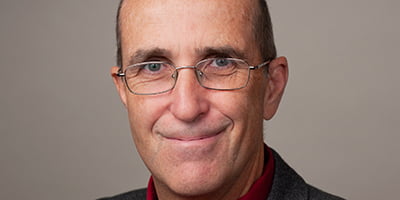
Leon Suprenant is the pastoral associate for administration in the office of the permanent diaconate. He also blogs at: www.archkck.org/blog.
by Leon Suprenant
After graduating from law school in the 1980s, I was searching for a way to channel my desire to help other people.
I was becoming disillusioned with secular approaches to societal ills, but I was also ambivalent about the church.
Then one Sunday, I heard a homily on the church’s social teaching by a deacon who also happened to be a lawyer. I was pleasantly surprised to discover that the church had something to say about poverty, injustice and other issues that mattered to me. Even more, I discovered that the church not only took my questions seriously, but also offered satisfying answers that have stayed with me ever since.
For me, the burning issue was not some internal church dispute, but rather, “Where is God in my life?” and “What does God have to say to the contemporary world?” When I was engaged on that level by the deacon, I realized that the Gospel of Jesus Christ has the power to transform every aspect of our world, beginning with my own heart.
I had been approaching issues from the wrong direction. I tended to think abstractly or collectively. But Christ deals with me person-to-person.
In turn, I should consider social concerns with the mindset that every member of the human family is an irreplaceable person with God-given dignity. Mother Teresa was the greatest social reformer of our era, but her reform was accomplished one precious soul at a time. I also cannot help others if I;m not continually being renewed in Christ myself. Life in Christ changes everything.
I must turn from sin and strive, however imper- fectly, for holiness. To love another person with Christlike love, I have to become more like Christ. That’s the lesson of the saints.
As Catholics, we under- stand that our participation in the sacrifice of the Mass should affect everything we do. Sunday Mass can’t be compartmentalized or separated from the rest of our lives.
This principle also holds true with social issues. It’s great when Catholics dedicate some time each week to assist the poor, sick or imprisoned. But that’s not enough. Our compassion must inform the way we live even when we’re not at the soup kitchens, the hospital or the jail. Something is amiss if our eucharistic adoration doesn’t commit us to love of neighbor, especially the poor.
Just as we cannot choose which church teachings we’re going to intellectually accept, we also cannot pick and choose which teachings are going to transform us.
None of the beatitudes begin “Blessed are the comfortable and secure.” It seems to me that serving others should be part and parcel of our Christian journey. How can I better serve others this coming week?

